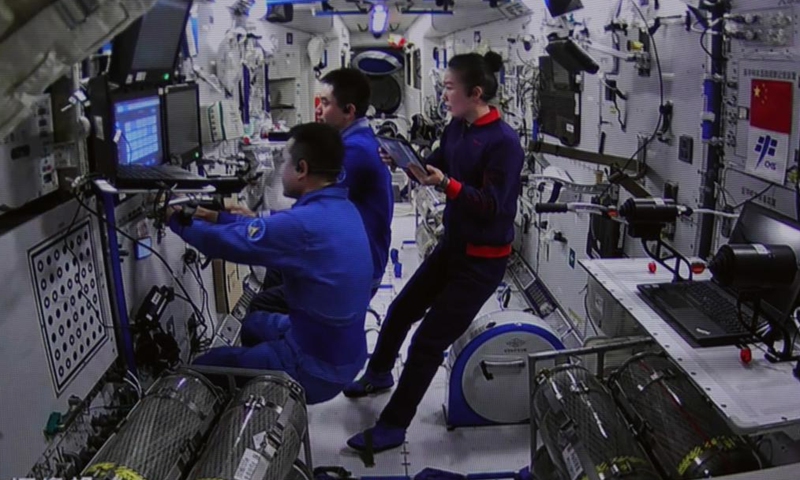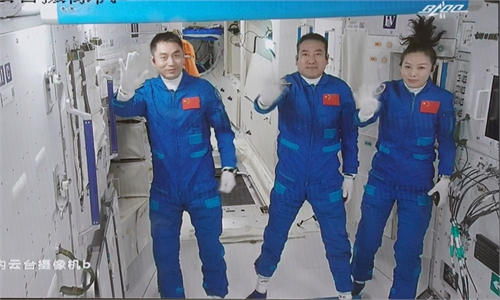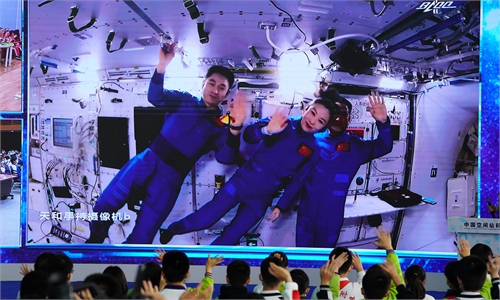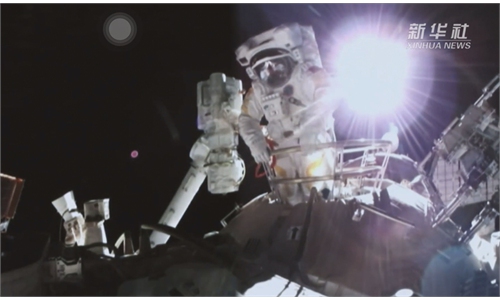Shenzhou-13 carry out groundbreaking experiments on life science during their orbit stay: deputy designer of taikonaut system

Screen image taken at Beijing Aerospace Control Center on Jan. 8, 2022 shows the Shenzhou-13 astronauts in China's space station core module conducting the manual rendezvous and docking experiment with the Tianzhou-2 cargo craft.Photo:Xinhua
Taikonauts of the Shenzhou-13 spaceflight crew have completed more than 20 scientific experiments in orbit, conquering multiple world's firsts during their record long stay in China's Tianhe space station core module, according to Li Yinghui, deputy chief designer of the country's astronaut system, on Wednesday.Li disclosed the information to the media ahead of the trio of taikonauts' highly-anticipated 2nd Tiangong classroom lecture scheduled on Wednesday around 4 pm.
According to Li, the zero-gravity environment has facilitated human research on life science studies. And the experiments the crew has successfully carried focused on new technology to monitor astronauts' wellbeing in space, innovation and new discoveries as well as data collection.
The Shenzhou-13 crew, Li said, transformed renal epithelial cells from human urine into vigorous stem cells with multiple functions via genetic reprogramming, and then these stem cells were differentiated into cardiomyocytes, which marked a world's first.
The crew then edited a fluorescent protein to the cardiomyocytes through genetic modification, so that we can see the blinking of calcium signal during contraction, which is also the first time in the world to see the beautiful cardiomyocytes in a weightless environment, Li noted.
Li said these studies will give us a better understanding of how the weightless environment impacts human beings, and also provide a great experiment model to contribute to the study of general public's health issues such as aging and the occurrence of heart diseases.
Chinese researchers have also completed the world's first suspension culture experiment of skin stem cells under long-term weightlessness conditions, thanks to the Shenzhou-13 crew and the country's space station, Li revealed, noting the study of cells will help us understand more about life.
Li added that the reason why they're making stem cells is to lay grounds for very important basic scientific support for human health. "If us astronauts desire to fly farther and in a healthier fashion, it cannot be done without accumulating new understandings that our studies on aerospace medicine are providing.
"Only when we have extensive new discoveries and understanding, will our support for astronauts become stronger," Li said.
Global Times



